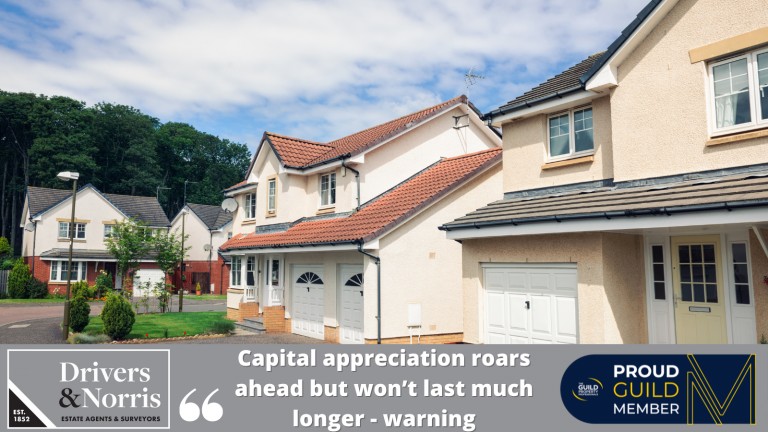
Landlords have enjoyed more capital appreciation with the average UK house price rising again in April, up by 1.1 per cent or £3,078, in the month, according to the Halifax house price index.
This was the 10th consecutive month that property values have increased, the longest run of continuous gains since the end of 2016.
“Housing transactions and mortgage approvals remain above pre-pandemic levels and the continued growth in new buyer enquiries suggests activity will remain heightened in the short-term. The imbalance between supply and demand persists, with an insufficient number of new properties coming onto the market to meet the needs of prospective buyers and strong competition to secure properties driving up prices” explains Halifax managing director Russell Galley.
“There remains evidence that this demand is centred on larger, family homes, rather than smaller properties such as flats. Over the past year, prices for detached and semi-detached properties have risen by over 12 per cent compared to just 7.1 per cent for flats.
“The net cash increase for detached properties, at just under £50,000 over the past year, is nearly five times more than for flats.
“For now, at least, despite the current economic uncertainty, the strong increases we’ve seen in house prices show little sign of abating … However, the headwinds facing the wider economy cannot be ignored. The house price to income ratio is already at its highest ever level, and with interest rates on the rise and inflation further squeezing household budgets, it remains likely that the rate of house price growth will slow by the end of this year.”
In response to the figures Karen Noye, mortgage expert at the consultancy Quilter, echoes the belief that the capital appreciation rate will reduce.
“This continued growth may have been fuelled by the looming Bank of England interest rate hike as people may have been scrambling to take advantage of lower interest rates while they were still available.
“[Last week’s] Monetary Policy Committee meeting confirmed the Bank Rate has once again been increased, this time to one per cent. This marked the fourth consecutive rate rise since the BoE began its fight against inflation back in December 2021 when it first raised rates following the pandemic, and the Bank Rate now sits at a level not seen since the aftermath of the financial crisis in early 2009. The hike represents yet another blow for UK household budgets already struggling with inflation, and those coming to the end of their fixed-rate mortgages will now suffer increased costs when they move onto a new rate.
“Despite this, demand still appears to be strong at present. Over the coming months, we will see whether the current market demand can take on the significant headwinds coming in the form of a squeeze on household finances due to inflation, interest rate hikes and the increasingly unpredictable circumstances surrounding the Russia-Ukraine war which has continued pushing energy prices more than ever.”
Via @LandlordToday
